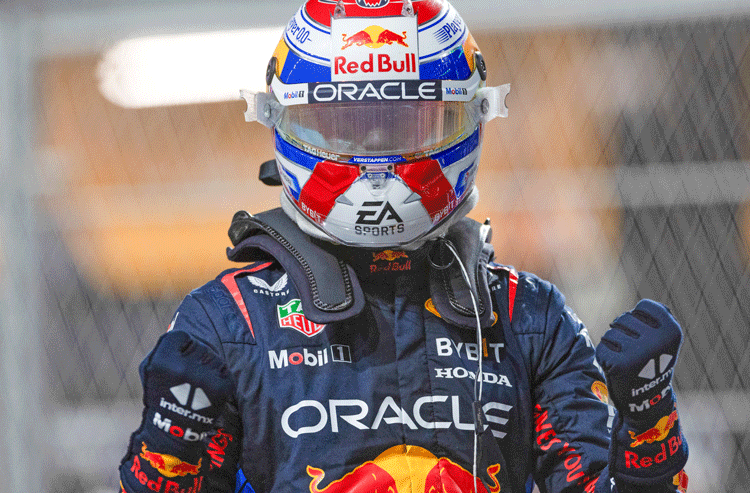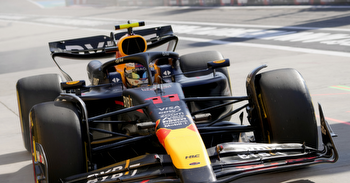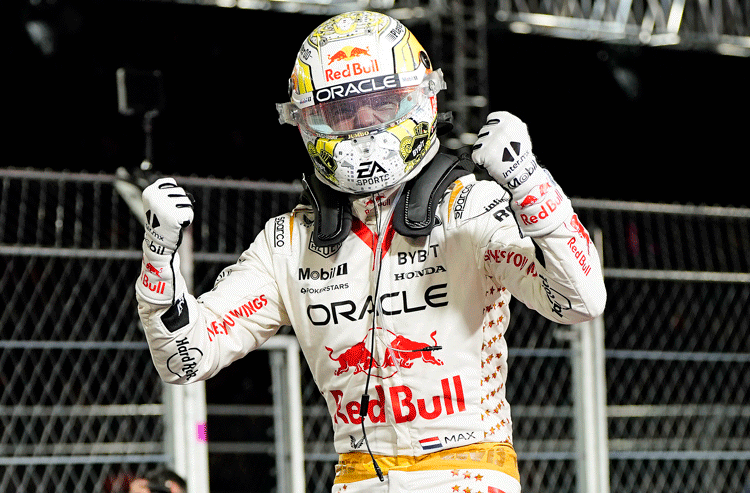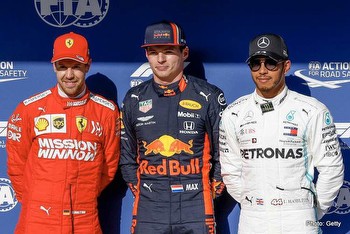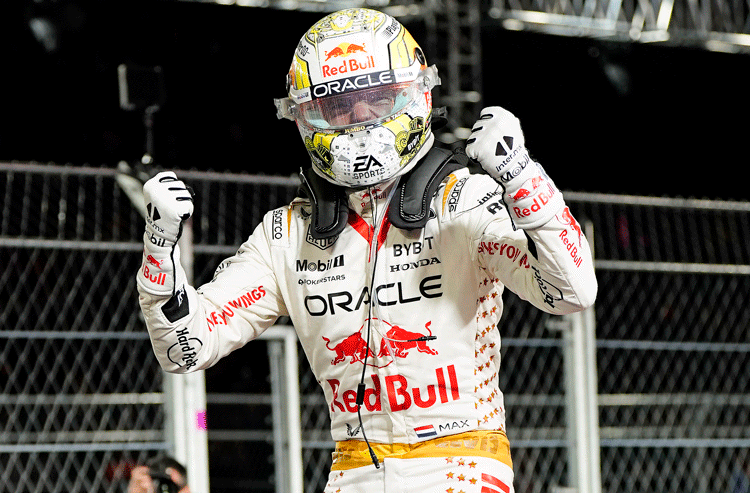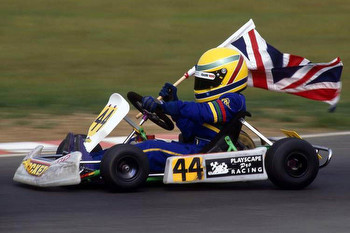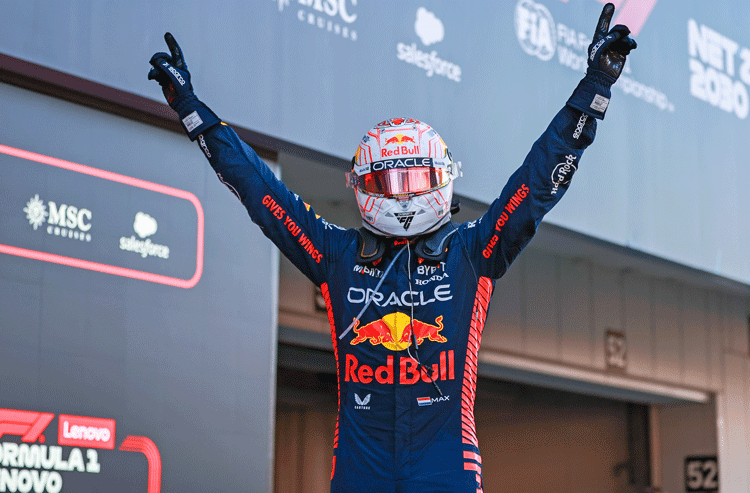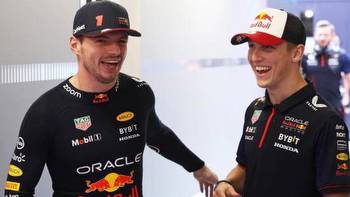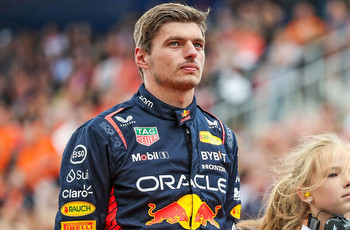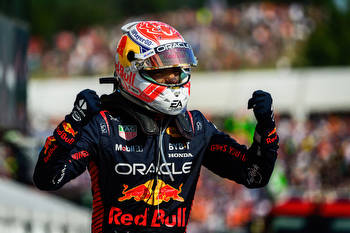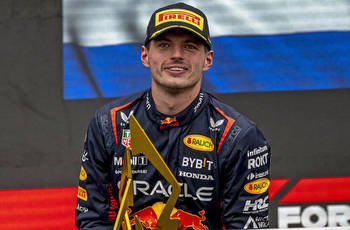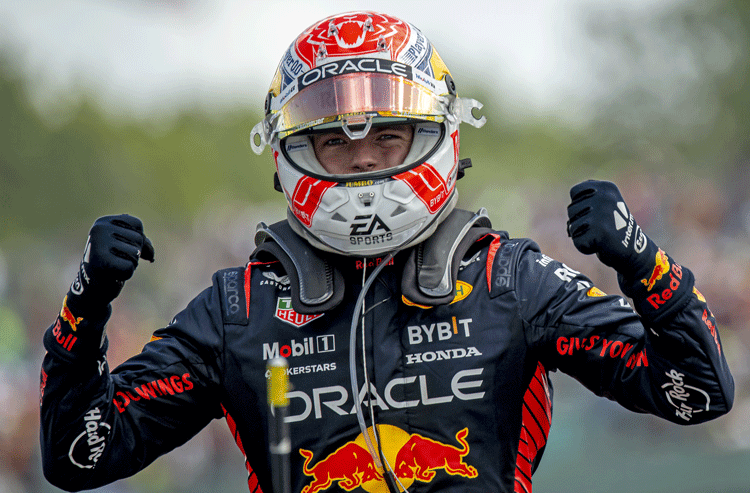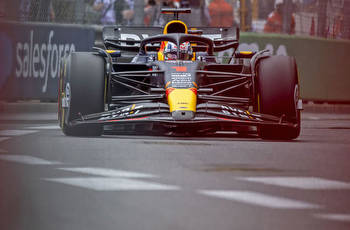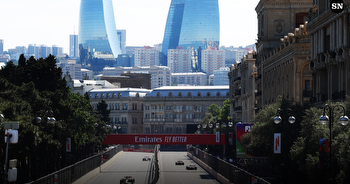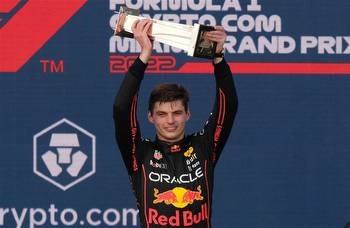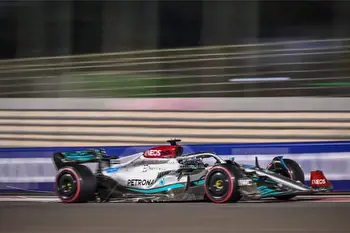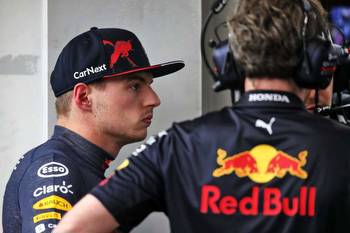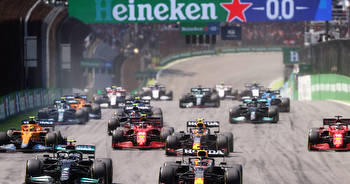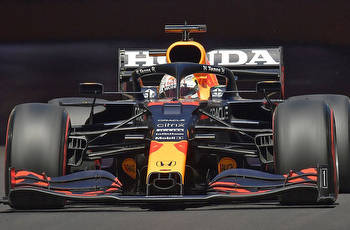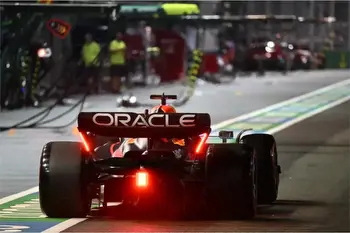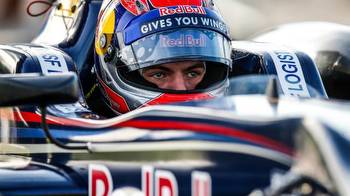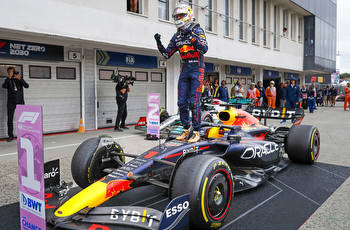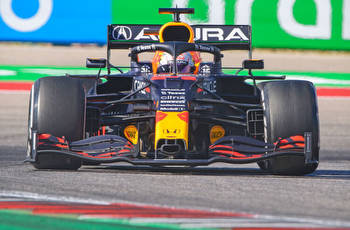The surprising normalcy of F1 superstar Max Verstappen
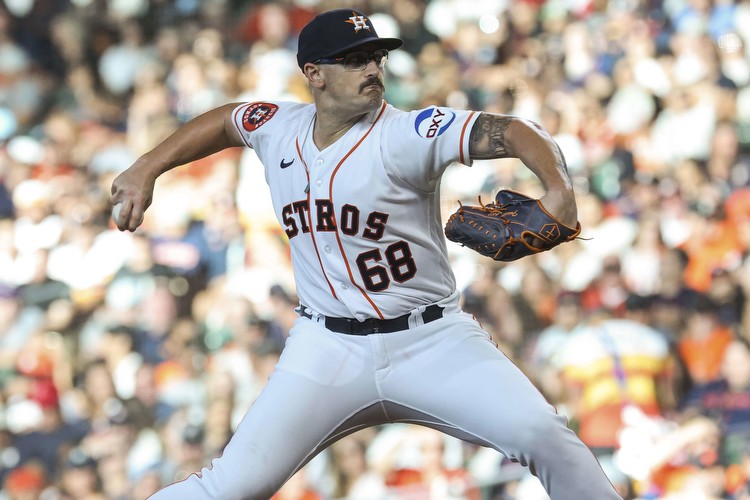
Stay informed on all the biggest stories in Formula One. to receive the Prime Tire newsletter in your inbox every Tuesday and Friday morning.
As rain soaked the empty paddock on the Thursday before the Belgian Grand Prix in late July, Red Bull’s Energy Station bustled with life.
Interviews and marketing campaigns unfolded on various floors and the bottom level echoed with conversations between team personnel and visitors. AlphaTauri’s Daniel Ricciardo recited lines for some filmed content on one side of a higher floor, a clear view of Circuit de Spa-Francorchamps’ Eau Rouge and Raidillon out the window beside him. Max Verstappen sat on a couch at the opposite end of the room as a series of video crews came by for interviews.
Rather than being rigid or aloof like many fans might expect from a two-time reigning world champion, the 25-year-old appeared light and jovial, chatting with the crews as they set up. He maintained eye contact with each journalist across from him and gave thoughtful responses, cracking a few jokes along the way.
En route to his third consecutive world championship, Verstappen is a good bet to become one of the sport’s all-time greats. But he doesn’t carry the aura you’d expect from F1’s superstar. Facing microphone after microphone, he maintained a surprising air of normalcy. Sitting across from him at Red Bull’s Energy Station feels like speaking with an everyday twenty-something — even if this one lives in Monaco, drives luxury cars and has a salary in the multi-millions.
Verstappen doesn’t like warm drinks, and though he is often seen with a Red Bull can nearby, he only drinks a few a day. He is strongly against pineapple pizza and doesn’t eat much fruit; he’s more of a chicken, veggie and quinoa person. He doesn’t go to the supermarket much anymore, and not just because so many people stop him to ask for pictures. “It’s dangerous that I go because I just load everything in it, and it’s not good for my weight,” Verstappen said. “So I have to be a little bit careful.”
He takes his own trash out but doesn’t cook much because of the length of the process compared to how long you enjoy the meal. He of course has social media accounts, but the reigning F1 champion sometimes doesn’t know how to post an Instagram story, asking his friends or girlfriend how the apps work, given how often they’re updated.
Outside of racing-related activities like watching non-F1 categories, Verstappen doesn’t have hobbies. “I’m not good at anything else. I’m not good at tennis. I’m not good at golf,” he said. “If I’m not good at it, I can’t enjoy it because it’s just terrible. I mean, you look like a clown.” Verstappen is competitive; he finds “no enjoyment in being bad.”
Verstappen doesn’t shy away from being straightforward, a quality he knows sometimes can put people off. But in motorsports, clear communication is vital. The Dutchman fearlessly pushes to the limit and has a strong feel for his car, analyzing the smallest details to find a competitive edge. He’s vocal in the driver’s seat, particularly during practice. But over the years, he’s drawn criticism from fans, pundits and fans for his aggressive, competitive driving style.
Verstappen’s dominance and straightforward nature have made him a divisive figure among fans, but he stays true to himself. He may be a two-time world champion and on a near-perfect streak that dates back to the Miami Grand Prix, but the juxtaposition remains intact: the competitor and the 25-year-old.
“He’s a normal person that is very feet on the ground,” said Red Bull technical director Pierre Waché. “He loves driving.”
A prodigy
What’s perhaps most impressive about Verstappen’s ability to retain a semblance of normalcy is the fact that racing is the only world Verstappen has known — and one he has thrived in.
His father, Jos Verstappen, is a former F1 driver who started his career in the mid-1990s as Michael Schumacher’s teammate. His mother, Sophie Kumpen, competed in karting (and raced against Red Bull team principal Christian Horner). Young Verstappen ending up in the driver’s seat seemed like destiny. He jumped onto a quad bike at around two-and-a-half years old and into the go-kart at four-and-a-half.
“I remember after a few laps, he did the whole track flat out,” Jos said in a 2020 interview with Red Bull’s podcast. “And because of the vibration of the kart, the carburetor was falling off all the time. We did it for one day and then immediately bought him a bigger go-kart.”
Verstappen began competing and won his first race at seven years old, and by nine, he had won titles in the Netherlands and Belgium. Over the years, his trophy count continued to rise, all while he was still attending school. And there comes the time when you have to decide which path to take.
“Realistically, when I was like 14, 15, at one point, you are away so much that it’s really hard to combine,” Verstappen said to The Athletic. “It’s either you go all in on your racing, or you go all in to go to school.” Since making his choice, Verstappen said, he hasn’t thought much about what he’d be doing now if he’d stuck with academics. “I really hated (school) so much.”
Verstappen entered the international scene in 2010 and dominated some championships in a fashion current fans will find familiar. CRG team boss Giancarlo Tinini said on the karting company’s website in a 2021 article, “Many confuse his determination and aggression with ‘unfairness,’ but I have never agreed on this thought, so much that in karting he has almost never been involved in race contacts.”
Verstappen stepped up to single-seater car racing in 2014, going straight into Formula Three with Van Amersfoort Racing. “It got announced in the Dutch media, and there’s a lot of hype around him, mainly because of Jos,” Team Redline’s general manager Atze Kerkhof said in a Jan. 2023 interview with Verstappen.com. (Verstappen joined the sim racing team a year later.) “Jos was our superstar at that point in F1. He was not active anymore, but Max was the world champion in karting. Everyone expected a lot from him in racing, but no one really knew like what Jos knew, like how special he is at that point.”
Verstappen only competed in F3 for that season before leaping to F1 in 2015, becoming the youngest ever F1 driver when he joined Toro Rosso (now AlphaTauri) at 17 years old, the youngest points scorer in his second race and the youngest grand prix winner at 18.
(These records are unlikely to be broken, as in 2016 the FIA set new requirements for F1: Drivers needed to be at least 18 years old and spend at least two years “running in minor formulas.” Drivers also would need to hold a valid driver’s license, which Verstappen was too young to have at the time.)
Special, needless to say, is an understatement.
The making of a world champion
What does it take to be at the top? A talented driver and a standout car.
The two feed off one another. To be a world champion, Waché said, a driver needs to be talented but also must be able to relay “what you need on the car to the engineer.” Waché indicated that this is one of Verstappen’s strong suits – being “able to extract the summary of the car and saying what we have to work on.” It’s then on the team to build a car to match.
Verstappen is honest and straightforward, not just in interviews but in meetings with engineers, and doesn’t “hide any emotion,” Waché said. Over the years, the technical director has seen Verstappen become more patient regarding how reactive the team can be to feedback. But his communication style is also easily misunderstood, according to Kerkhof.
“How I know Max is completely different than how the world sees him,” Kerkhof said in the Verstappen.com interview. “What we do very well in the Netherlands is that we always speak the truth in terms of what we think — we’re quite direct.
“Max is very ‘Dutch’ when it comes to his communication. He’s very direct, and it helps him a lot and the people around him because you know exactly what he means and what he wants to say, and he’s just always direct.”
When Waché first met Verstappen, his initial impression was “very talented,” but “I didn’t think it will be as good at the beginning.” The Dutchman joined the senior team in 2016. Initially, “he was more an underdog and trying to make it happen very quickly,” the engineer added. But by 2018, he realized Verstappen could be a world champion when he began beating his teammate, Daniel Ricciardo. Verstappen “learned how to be more consistent, to be less aggressive,” according to Waché.
That season was a turning point as Verstappen recorded poor results at the beginning. After the Monaco Grand Prix, Verstappen recalls thinking, “It was like, ‘Okay, now it’s really time to get your shit together, basically.’ And, I mean, you need some tough moments sometimes to come back stronger.”
Now, Waché says Verstappen is “a lot more mature in terms of communication,” and on track, he has a better sense of “when you can take risk and less risk compared to the beginning.” A prime example is with overtaking — he now waits to make the pass later (having a car like the RB19 makes that easier). “In the past, he wanted to do all the plays (at) the first corner, (which) then created some crashes and some disappointment,” Waché said.
In addition to Verstappen’s growth in patience, Waché feels his relationship with the engineers is better — and the Belgian Grand Prix’s snippy but clear exchanges between Verstappen and Gianpiero Lambiase are an example of that.
But two titles later, Waché says nothing has changed with Verstappen as a person. Fame and fortune can change people, but Verstappen still sports a cap with his casual outfits and arrives at meetings on time.
The next chapter
Verstappen is happy this year. And it may shock some that he doesn’t appear bored despite often spending races at the front with the second-place competitor nowhere in sight.
Since the Miami Grand Prix weekend in May, the Dutchman has put together near-perfect weekends en route to eight consecutive victories (including Miami), five fastest laps and six pole positions. Yet he’s nonchalant once he’s out of the driver’s seat, even when peppered with the same questions during interviews. Verstappen mastered a quality during his go-karting years that many struggle to grasp in their adult lives: flipping the switch between work and his personal life. “I’ve always been like that. I think it’s just how you function,” Verstappen said. “Everyone is different.”
There’s “never crossover,” Waché said, adding that Verstappen is often on his simulator during his off time. But the Dutchman jumping from one racing specialty to another isn’t all that surprising, especially considering that he has mentioned retirement numerous times in recent years. When asked why he’s saying it at 25 years old, he counters with, “Why not?”
“I’ve been doing it since (I was) four years old,” Verstappen elaborated. “So at one point, there’s a stage where it doesn’t matter anymore. The racing or your income, it doesn’t matter. I just want to have a good life outside of it and not having to worry to find the best lap time every single time.”
Verstappen wants “a bit more time off” but not to walk away from racing altogether — he may even create a team. He feels that combining a physical team with sim racing “is my future,” which isn’t a complete surprise given Verstappen’s hobbies. He has been involved in the space since a young age, racing on a PlayStation since he was three or four years old before joining Team Redline in 2015.
“Most of the guys now, they all come through go-karting, and it’s expensive. A lot of people don’t have the money to sponsorships or don’t have the luxury to get all the way to where I am,” Verstappen said. “It doesn’t even matter if you get all the way to Formula One. But any other great category out there, if there is a path through sim racing, that would be crazy if you could make that happen.”
There are numerous sim racers who once had racing careers, he says, “but they might run out of money. So to try and maybe kickstart their careers, again, through sim racing, that would be also really nice.”
Competing in other cars, even in a virtual space, is a hobby he enjoys. Verstappen said, “And it keeps you busy in a way of, you’re constantly thinking about how can I improve myself, my driving style, the car.”
“It’s the same thing as in real life, basically, but in probably a little bit more relaxed environment.”
Red Bull’s top driver is still a fierce competitor, but a softer side emerges once he’s out of the driver’s seat. Verstappen hung around longer than anticipated while meeting Make-A-Wish kids and their families at Spa, cutting it close to his next appointment on his packed calendar. He’s cracking jokes during interviews and press conferences each week, rarely trying to hide his smile.
As confetti fluttered around him on the Belgian GP podium and he wiped champagne off his face, Verstappen seemed calm and joyful, the world not weighing on his shoulders. It carried with him through interviews and the post-race press conference, one that he ended with a dirty joke when asked how he’d spend his summer break.
Bounding down the stairs to get to the team celebration, he reflected on how he defines happiness and success when you take away these points, podiums and championships. After all, he’s not one to fixate on records. “Honestly, (my happiness is) all about my private time,” Verstappen said with a chuckle. “(F1) is all performance-related. This is also kind of your job, right? So (they’re) a bit different kind of emotions.”
To Verstappen, being normal means valuing “the important things in life,” like his family and friends.
“Of course, it’s important to try and be the best you can here. But I also know that this is not going to be your whole life,” Verstappen said ahead of the Belgian Grand Prix. “This is just a part of your life where you tried to be successful, but actually, what happens outside of this is much more important.”
Formula One is a sport surrounded by luxury as 20 drivers hop into cars worth over $100 million, travel the world from track to track and spray champagne in celebration of a podium finish. How does F1’s superstar stay normal and be a “very feet on the ground” type of person, as Waché put it, particularly with two world driver titles under his belt and beating his opponents by nearly 30 seconds at times?
“By not really caring about supposedly being that superstar. I mean, I’m here to win. I’m here to race. I love what I’m doing at the moment,” Verstappen said. “But I also don’t really care about the show all around it. That’s not what I fell in love with with Formula One. It was more about just driving the car and trying to win.”
(Lead image: Design by John Bradford; photos by Dan Mullan, Clive Rose, Mark Thompson/Getty Images)

